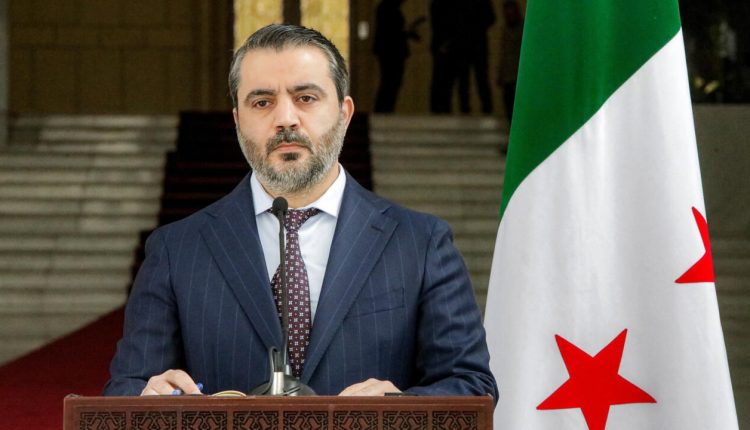Syrian Foreign Ministry Launches Diplomatic Restructuring Under Presidential Directive
By Kardo Roj
DAMASCUS, Syria (North Press) – Syrian Foreign Minister Asaad al-Shaibani announced Tuesday that the Ministry of Foreign Affairs has begun restructuring the country’s embassies and diplomatic missions abroad, following directives from Syria’s transitional President Ahmad al-Sharaa.
In a post on his official X (formerly Twitter) account, al-Shaibani stated, “Under the guidance of President Ahmad al-Sharaa, we have initiated the restructuring of our embassies and diplomatic missions to ensure distinguished representation of the Syrian Arab Republic and provide high-quality services to Syrian citizens abroad.”
The announcement comes amid mounting signs of internal adjustments within the Syrian state’s foreign service structure, including the recent reassignment of senior diplomats and a cyber incident involving the embassy in Moscow.
According to a source within the Syrian Foreign Ministry, speaking on condition of anonymity, the ministry has ordered the return of Syria’s ambassadors to Russia and Saudi Arabia—Bashar Jaafari and Ayman Sousan, respectively—to the central administration in Damascus.
While no specific reasons were publicly cited for the move, it follows weeks of internal deliberations and what analysts interpret as an attempt by the transitional leadership to reassert central authority over key diplomatic outposts.
The redeployment of Jaafari, a longtime Syrian envoy to the United Nations and later Moscow, is particularly notable. Jaafari had played a prominent role in shaping Syria’s international discourse during the conflict’s most turbulent years.
Adding to the swirl of developments, Syria’s embassy in Moscow reported Monday that its Telegram channel had been hacked. A post falsely attributed to the embassy expressed well wishes to Jaafari and hailed him as the “lion of diplomacy,” sparking confusion over whether his departure was officially acknowledged.
The embassy issued a statement denying the post’s authenticity, emphasizing that its Telegram account had been compromised. It also called on Telegram’s administration to investigate and disclose the identity of those behind the cyber intrusion.
While the Foreign Ministry later confirmed the diplomats’ recall through state media channels, it did not comment on the alleged hack beyond reiterating its commitment to transparency and digital security.
The diplomatic reshuffle is being interpreted by regional observers as part of a broader recalibration under President Ahmad al-Sharaa, who assumed the transitional presidency amid ongoing political efforts to stabilize the country.
The restructuring of Syria’s foreign service may reflect an attempt to reset foreign policy priorities and project a renewed image to international partners. It also coincides with a subtle shift in language emphasizing professionalized consular services and broader outreach to the Syrian diaspora.
No details have yet been made public regarding the criteria or timeframe for the restructuring process. However, multiple analysts suggest the reshuffle could extend to other embassies in the coming months as the transitional leadership seeks to align diplomatic staffing with new political realities.

